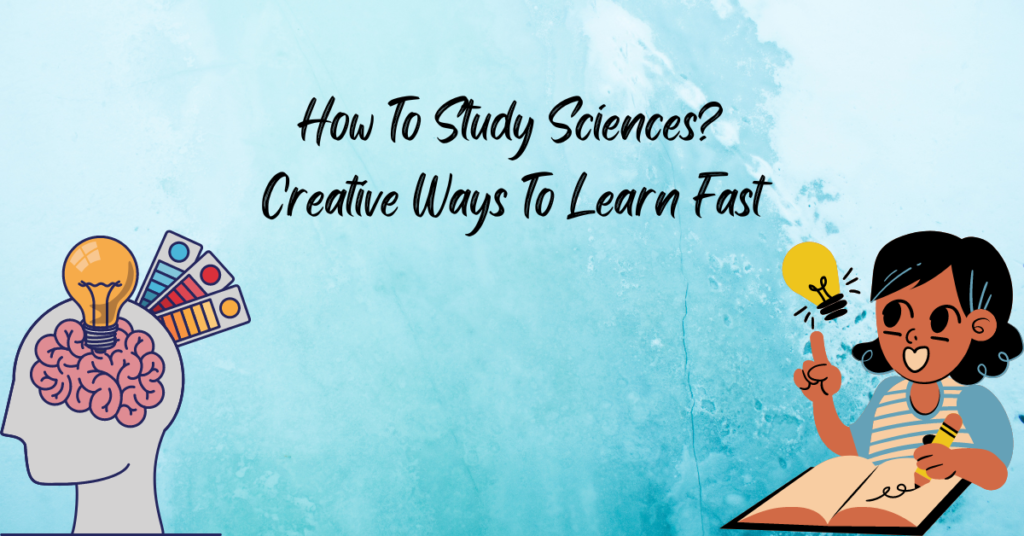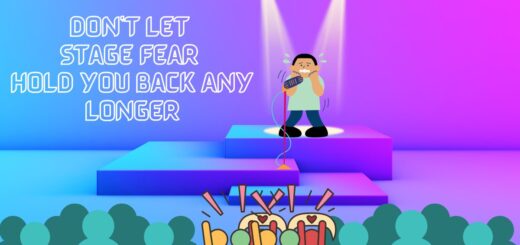How To Study Sciences? Creative Ways To Learn Fast

Studying for your exam feels like a lot of work, but it’s actually easier than you might have thought. Worst case scenario, you read your notes before the day of the exam, figure out what chapters and things are on your test, and then review those chapters in depth by reading them again or writing a short summary of each section right into your notebook.
Science is one of the most misunderstood subjects in school and many students are understandably unsure about how to study it. In this article, you’ll discover some creative ways that you can use to learn science faster and more efficiently – be it for the upcoming test, or for your general knowledge!
Learn Faster by NOT memorizing
One of the best ways to learn something is by not trying to memorize it. When you focus on understanding a concept, you are more likely to remember it later. Try testing yourself on a concept by explaining it to someone else. If you can explain it clearly, then you understand it well. If you’re having trouble understanding a concept, try breaking it down into smaller pieces and focusing on each piece separately.
Ask Questions
If you want to learn sciences fast, one of the best ways to do it is by asking questions. Don’t be afraid to ask your teacher or professor for help, and always ask questions in class. If you’re struggling with a concept, asking questions can help you understand it better. Also, try to find a study partner who can help you understand the material better. Talking through concepts can help you learn them faster and remember them better.
Studying Less Textbook, More Experiences
It’s no secret that science isn’t the most popular subject in school. A lot of students find it difficult and dry, and as a result, they don’t do well in their classes. But what if there were a way to make science more fun and interesting?
There are actually many ways to make studying science more enjoyable. One way is to focus less on textbook learning and more on real-world experiences. For example, instead of just reading about the anatomy of the human body, go to a museum and see a real skeleton up close. Or instead of learning about the chemical properties of different elements, do some experiments yourself.
Another great way to learn science is to find creative ways to study. For example, try making flashcards with pictures instead of just words, or create Mnemonic devices to help you remember key concepts. And don’t be afraid to get help from friends or teachers – they can often offer valuable insights that you wouldn’t have thought of on your own.
With a little effort, you can make science a lot more enjoyable – and maybe even start getting good grades in your classes!
Take a Study Break to Switch Sides of the Brain
It’s no secret that studying can be a drag. Whether you’re struggling to keep up with lectures or simply don’t enjoy the material, it’s easy to get bogged down in the endless cycle of readings and assignments. But there is hope! One way to make studying more bearable (and even enjoyable) is to take breaks to switch sides of the brain.
Here’s how it works: when you’re feeling stuck, take a break and do something creative. It can be anything from doodling to brainstorming ideas for a paper. The point is to give your left brain a break so your right brain can take over. And trust us, your right brain knows how to have a good time.
Not only will this help you stay sane during long study sessions, but it can also boost your productivity. So next time you’re feeling overwhelmed, take a break and let your creativity flow. Who knows, you might just come up with a breakthrough solution to that pesky problem you’ve been stuck on for hours.
Brainstorming To Make It Easier to Retrieve Memories
When trying to study and learn scientific information, it can be difficult to remember all of the details. To help make it easier to retrieve memories, try brainstorming with a friend or family member. This will allow you to get all of the information out in the open so you can work on organizing it in a way that makes sense to you. You may also want to create visual aids such as charts or diagrams to help group information together. Additionally, try studying in short bursts throughout the day instead of trying to cram everything in at once. This will give your brain time to process and store the information more effectively.
Learning materials available online:
CBSE All In One Science Class 10 for 2022-23 EditionScience Class 10 – CBSE – Examination 2022-23
A Textbook Of Cbse Biology For Class Xi (For 2020-21 Exam)


